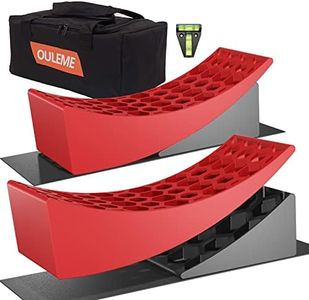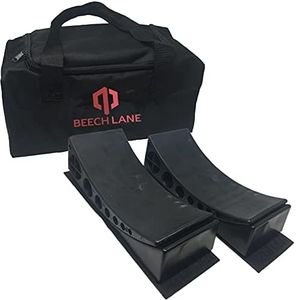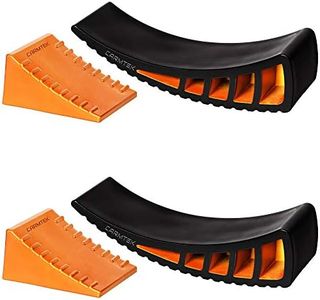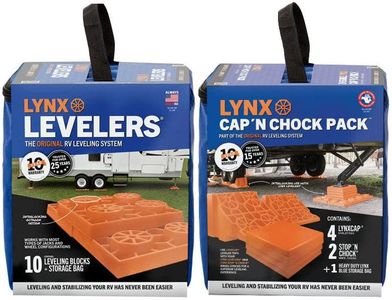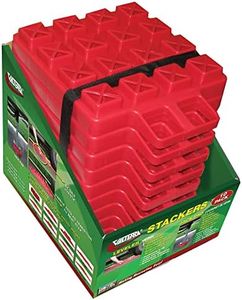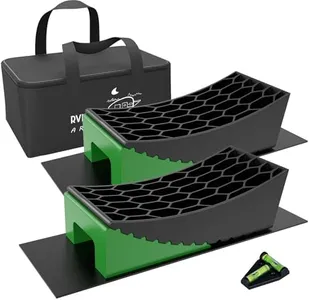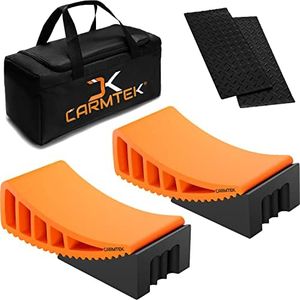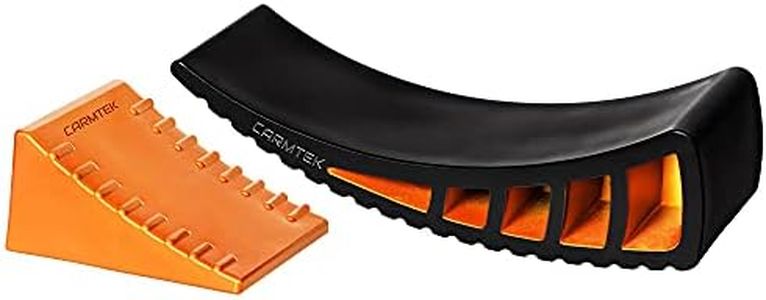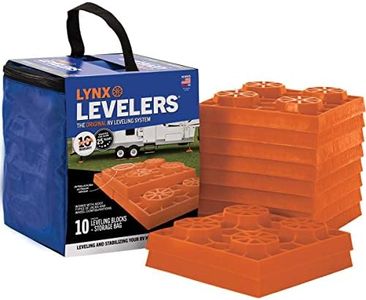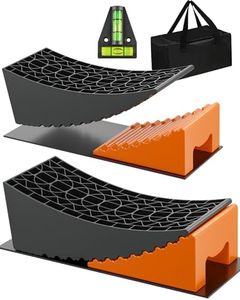We Use CookiesWe use cookies to enhance the security, performance,
functionality and for analytical and promotional activities. By continuing to browse this site you
are agreeing to our privacy policy
10 Best Rv Levelers
From leading brands and best sellers available on the web.By clicking on a link to a third party's website, log data is shared with that third party.
Buying Guide for the Best Rv Levelers
Choosing the right RV leveler is crucial for ensuring a safe, stable, and comfortable experience when parking your recreational vehicle on uneven ground. The purpose of an RV leveler is to keep your RV properly balanced, which not only makes everyday activities more comfortable but also protects your appliances and minimizes wear on your vehicle. To make the best decision, it’s important to understand the key features that affect performance and usability. Consider your RV size, typical camping sites, and how much convenience you want in the setup process.Weight CapacityWeight capacity refers to the maximum weight the leveler can safely support. This is important because using a leveler that can't handle your RV’s weight may result in damage or a dangerous situation. You'll find levelers rated for light, medium, or heavy weights, often corresponding to small trailers, standard campers, or large motorhomes. To pick the right one, check your vehicle’s weight (usually found in your manual or on a sticker inside the RV) and choose a leveler with a capacity that meets or exceeds this value.
Leveling RangeLeveling range indicates the maximum height difference the leveler can compensate for when making your RV level. This is significant because ground unevenness varies from site to site. Some levelers might only provide a couple of inches of adjustment, while others can manage higher slopes. If you often camp in established RV parks with fairly flat spots, a smaller range is usually enough. For off-grid or rugged locations, a leveler with a wide range will be more useful.
Material and DurabilityThe build material determines how strong, weather-resistant, and long-lasting a leveler will be. Most are made from heavy-duty plastic, composite materials, or metal. Plastic options are lightweight and resistant to rust but may crack under heavy loads or extreme temperatures. Metal levelers are strong and durable but can be heavier and prone to rust if not coated. Pick a material that suits your expected use—frequent or rough-terrain use may call for stronger, more durable materials.
Ease of UseEase of use covers how simple and quick it is to set up and adjust the leveler. Some designs, like ramp-style or step blocks, require manual placement and wheel movement, while others use wedge or automatic systems for quicker levelling. If you prefer a hassle-free setup, look for levelers with user-friendly designs and clear instructions. Your own physical ability and the level of convenience you desire should guide your choice here.
CompatibilityCompatibility means the leveler will fit and work well with your specific RV’s wheel size, axle type, and tire width. Not all levelers are designed for larger tires or dually wheels. To avoid frustration, check your RV’s tire dimensions and make sure the leveler you are considering is designed to accommodate them. Manufacturers usually provide guidelines about what vehicles and tire sizes their product supports.
Portability and StoragePortability and storage talk about how easy it is to carry and stow the leveler when it’s not in use. Some levelers are lightweight, compact, and stack easily, making them perfect for smaller RVs or for those who want to save on storage space. Bulkier or heavier levelers might be more durable but take up more room. Think about your available storage compartment size and how important portability is to your travel style.


